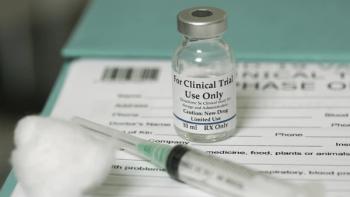
HIV drug may also treat AMD
A recent study published in Science found that drugs that have been used to treat HIV/AIDS for 30 years can also be used to treat age-related macular degeneration (AMD), as well as other inflammatory disorders, due to previously undiscovered intrinsic and inflammatory activity those drugs possess.
Lexington, KY-A
Nucleoside reverse transcriptase inhibitors (NRTIs) are the most widely used class of anti-HIV drugs and are thought to be therapeutic in HIV/AIDS patients because they target the enzyme reverse transcriptase, which is critical for replication of HIV.
Researchers report that multiple FDA-approved NRTIs prevented retinal degeneration in a mouse model of dry AMD. Surprisingly, this effect of NRTIs in the eye was not due to the well-known function of these drugs to inhibit reverse transcriptase. Instead, NRTIs blocked an innate immune pathway called the inflammasome, even in experimental systems in which the NRTIs were not capable of blocking reverse transcriptase.
The study also showed that NRTIs were effective in other disease models that share common signaling pathways with the dry AMD model, including wet AMD and graft-versus-host disease, which is the major obstacle preventing successful allogeneic hematopoietic stem cell transplantation.
"Repurposing of NRTIs could be advantageous, for one, because they are very inexpensive," says Benjamin Fowler, PhD, the study’s lead author. “Moreover, through decades of clinical experience, we know that some of the drugs we tested are incredibly safe. Since these NRTIs are already FDA approved, they could be rapidly and inexpensively translated into therapies for a variety of untreatable or poorly treatable conditions."
Newsletter
Want more insights like this? Subscribe to Optometry Times and get clinical pearls and practice tips delivered straight to your inbox.













































.png)


